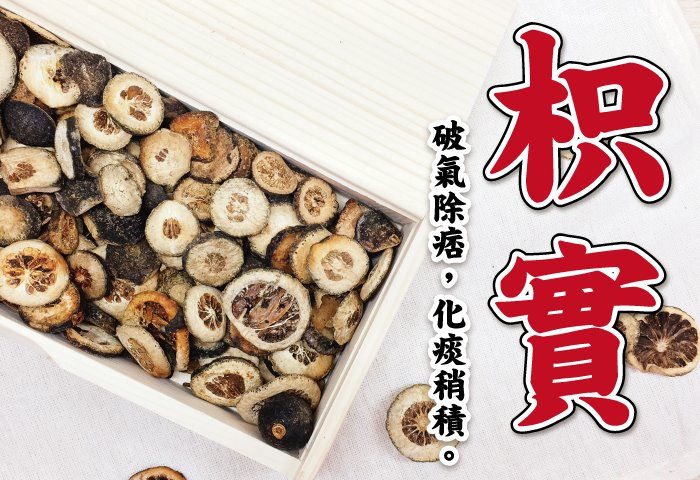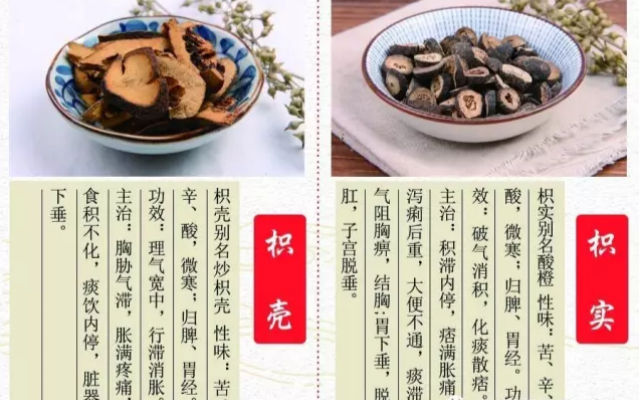Zhi Shi: The TCM Herb for Relieving Digestive Stagnation
- Hongji Medical

- Jun 23, 2025
- 4 min read
Zhi Shi, also known as immature bitter orange, is the dried young fruit of Citrus aurantium or its cultivated varieties, or Citrus sinensis, used in Traditional Chinese Medicine (TCM). It is valued for its ability to break up qi stagnation, relieve food retention, and clear phlegm blockages. It is commonly used for digestive issues like bloating and chest fullness.
Zhi Shi was first recorded in the Shennong Bencao Jing (Shennong’s Classic of Materia Medica) as a lower-grade herb, noted for breaking up stagnation, resolving masses, and eliminating parasites. The Mingyi Bielu further described its benefits for improving digestion, clearing phlegm, and relieving bloating.
Li Shizhen’s Compendium of Materia Medica detailed its thorny tree, small green fruits, and its role in breaking qi, easing constipation, and reducing swelling. The Yaoxing Fu succinctly praised its ability to break qi and relieve bloating, highlighting its importance in TCM for digestive health.

Properties of Zhi Shi
Nature and Channels
Taste: Bitter, pungent
Nature: Slightly cold
Channels: Spleen, Stomach, Large Intestine
Main Benefits
Breaks up qi stagnation and resolves food retention
Clears phlegm and relieves fullness
Promotes bowel movements
Supports uterine contraction post-delivery
Dosage
Internal use: 3–9 grams, boiled in decoctions.
Growing Regions and Harvest
Found in southern China, including Sichuan, Jiangxi, Hunan, and Guangdong. Harvested in May–June, cut in half, and dried.
Identification
Shape: Hemispherical or occasionally spherical, 0.5–2.5 cm in diameter.
Color: Outer peel brownish or dark brownish with net-like wrinkles and raised oil spots; inner peel yellowish-white to light brown.
Features: Peel 0.3–1 cm thick with scattered oil spots; 8–12 segments with seeds inside.
Texture: Hard.
Scent and Taste: Aromatic, bitter, slightly sour.
Preparation
Raw: Stronger for breaking qi and resolving stagnation.
Bran-fried: Milder, enhances spleen and stomach support.
Water-fried: Reduces irritation.

Clinical Uses of Zhi Shi
Zhi Shi is used in TCM to treat various conditions:
Food Retention: Relieves abdominal fullness, pain, belching with a foul taste, nausea, vomiting, loss of appetite, and smelly or constipated stools.
Chest Fullness: Eases chest tightness, bloating, and breathing difficulties due to emotional stress or poor diet.
Gastric Prolapse: Alleviates bloating and discomfort after eating caused by stomach drooping.
Rectal Prolapse: Used with qi-tonifying herbs to address prolapse from qi deficiency.
Phlegm Stagnation: Treats chest tightness and cough from phlegm accumulation.
Constipation: Relieves constipation due to qi stagnation.
Postpartum Abdominal Pain: Addresses pain from retained lochia obstructing qi flow.
Specific Benefits
Breaking Qi Stagnation and Resolving Food Retention: Zhi Shi’s hesperidin promotes gut motility and digestive secretions, relieving bloating and pain.
Clearing Phlegm and Fullness: It disperses phlegm and resolves chest or abdominal blockages.
Promoting Bowel Movements: It aids in relieving constipation caused by stagnation.
Supporting Postpartum Recovery: It helps contract the uterus to clear retained lochia.
Zhi Shi in TCM Formulas
Zhi Shi is often combined with other herbs in TCM formulas to enhance its effects. Here are some examples:
Zhi Shi Dao Zhi Wan (Immature Bitter Orange Stagnation-Relieving Pill): Combines Zhi Shi with Rhubarb, Scutellaria, Coptis, Poria, Atractylodes, Alisma, and Massa Fermentata to clear food stagnation and damp-heat, treating bloating and constipation.
Hou Po Qi Wu Tang (Magnolia Seven-Substance Decoction): Includes Zhi Shi with Magnolia Bark, Licorice, Cinnamon Twig, Rhubarb, Jujube, and Ginger to promote qi flow and relieve cold-related bloating and pain.
Ban Xia Xie Xin Tang (Pinellia Drain Heart Decoction): Uses Zhi Shi to balance cold and heat, dispersing stagnation and fullness.

Comparison with Similar Herbs
Zhi Shi shares effects with other TCM herbs but has distinct strengths:
Zhi Qiao (Mature Bitter Orange): Regulates qi and relieves fullness but is milder, better for spleen-stomach qi stagnation.
Magnolia Bark (Hou Po): Promotes qi and dries dampness, stronger for damp-related bloating and nausea.
Radish Seed (Lai Fu Zi): Resolves food stagnation and phlegm, better for cough and asthma from stagnation.
Zhi Shi is unique for its strong qi-breaking and digestive effects.
Modern Applications and Research
Modern research highlights Zhi Shi’s benefits:
Digestive Support: Hesperidin and volatile oils enhance gut motility and stomach emptying, improving digestion.
Anti-Ulcer: Extracts may protect against ulcers.
Anti-Inflammatory: Reduces inflammation.
Anti-Allergic: Relieves allergic symptoms.
Clinical Uses
Digestive Disorders: Used for functional dyspepsia and chronic gastritis.
Gastric Prolapse: Eases related symptoms.
Cardiovascular Health: Helps regulate blood pressure.
How to Use Zhi Shi Safely
Precautions
Qi Deficiency or Weakness: Use cautiously, as it may deplete vitality.
Pregnancy: Avoid use due to its qi-breaking properties.
Long-Term Use: Avoid prolonged use to prevent qi damage; follow medical advice.
Usage Tips
Raw Zhi Shi is stronger for stagnation; bran-fried or water-fried forms are gentler. Consult a TCM practitioner for proper dosage and suitability.
Conclusion
Zhi Shi is a powerful TCM herb known for breaking qi stagnation, resolving food retention, and clearing phlegm blockages. It effectively treats bloating, chest fullness, constipation, and postpartum issues, with modern research supporting its digestive and anti-inflammatory benefits. To ensure safe and effective use, consult a TCM practitioner, especially for those with weak constitutions or during pregnancy.




